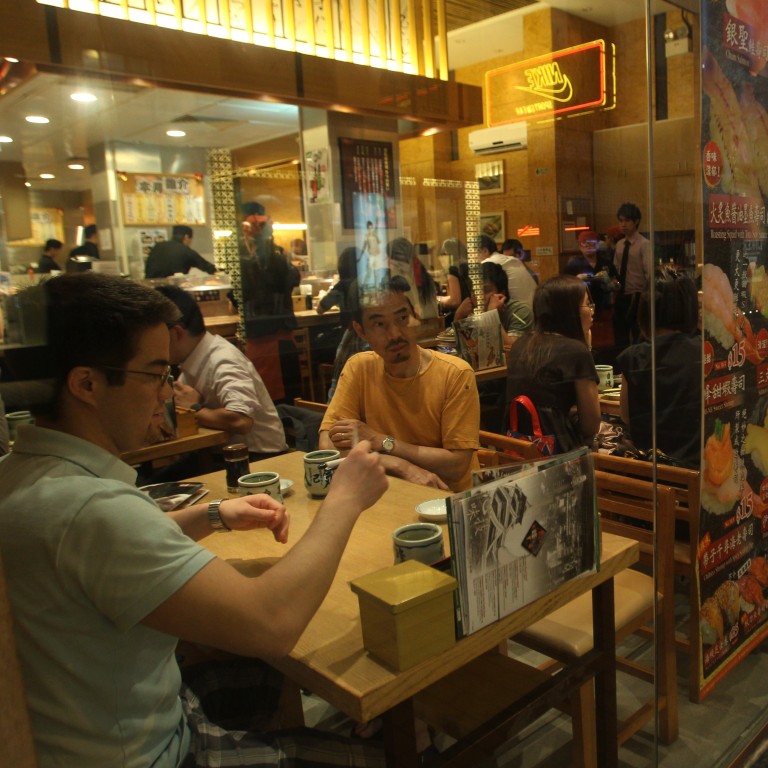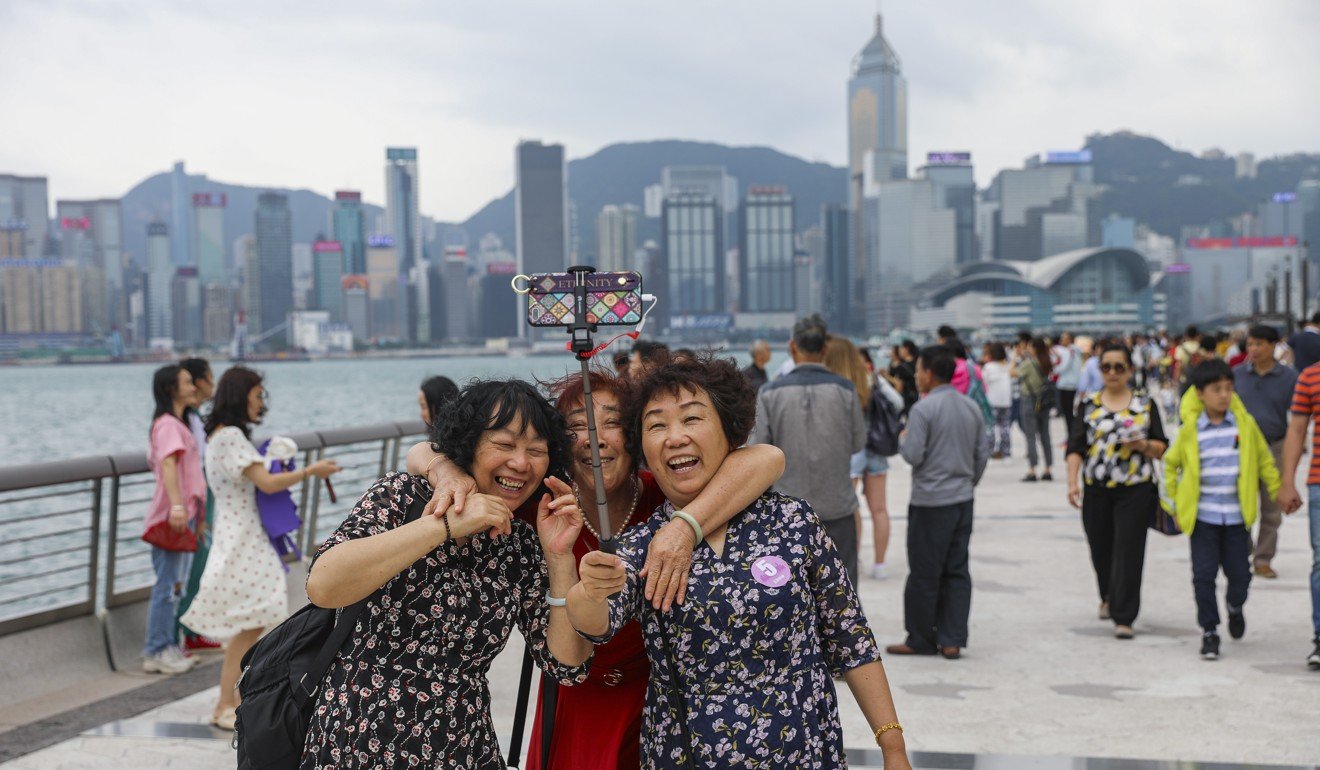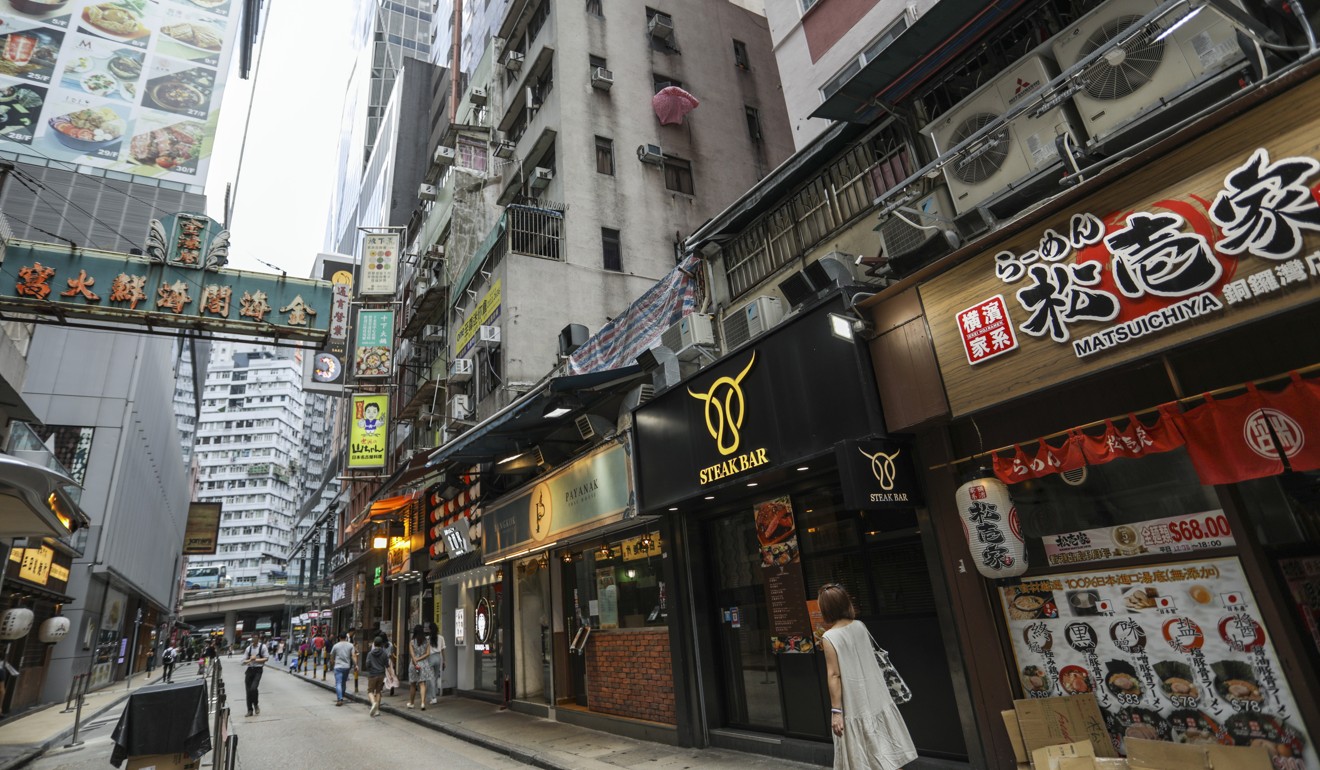
Protests cast a shadow on restaurant rents in Causeway Bay and Central
- Restaurant rents in these two districts are set to fall up to 8 per cent and 3 per cent respectively in the next six months, according to Cushman & Wakefield
- Chinese tourists are not crossing the harbour, preferring to shop and dine on the Kowloon side
The ongoing protests that have expanded to different districts of the city will hurt restaurants, putting further pressure on landlords to cut rents if the demonstrations persist, say industry observers.
In the past six weeks, Hong Kong has been rocked by a series of mass rallies and clashes between protesters and the police, sparked by the now-suspended extradition bill which would have allowed the transfer of fugitives to regions such as mainland China and Taiwan.
This resulted in road closures and transport suspensions almost every weekend to protest sites. These were mostly restricted to Causeway Bay and Central at first, but have since spread beyond Hong Kong Island.
On July 7, a mass rally against the extradition bill was held on Kowloon Island for the first time in the bustling tourist hub of Tsim Sha Tsui. Subsequent rallies on July 13 and 14 sprung up at two towns in the New Territories – Sheung Shui and Sha Tin.

Another march is being planned for this Sunday in Tseung Kwan O, and unless the protesters’ demands for the bill to be withdrawn is met, will unlikely be the last.
Jeanette Chan, regional director of retail leasing services at JLL, said that if the protests continue, it will have a serious impact on the food and beverages business and have a negative effect on retail rent.
“The protests have normally been in the afternoon until about 10 in the night. They stop all the roads, no cars can pass, and that is not to say the pedestrians wanting to dine in those districts,” Chan said.

Cushman & Wakefield last week forecast restaurant rents on Hong Kong Island will plunge further in the next six months even as tourist arrivals to the city grew at its fastest pace in almost a decade.
In Causeway Bay and Central, these rents were expected to fall by up to 8 per cent and 3 per cent, respectively, in the second half of the year, extending its steady decline of about 20 per cent and 15 per cent since 2015, the consultancy said.
Record 65 million visitors for Hong Kong in 2018, but what if mainland Chinese tourists stop coming?
“Same-day visitors tend to stay on the Kowloon side, rather than go to [Hong Kong] Island. So, we see that rental trend in Central and Causeway Bay is on quite an obvious downward trend,” said Kevin Lam, executive director and head of retail services at Cushman & Wakefield Hong Kong.
The decline in rents for these restaurants, which includes bars and other miscellaneous food and drink shops, comes even as total tourists arrivals from January to May grew 14.9 per cent, supported by the completion of two new cross-border links into mainland China.
Same-day visitors from mainland China, who make up roughly 80 per cent of all arrivals into the city, grew 20.7 per cent in the same period year on year.
However, restaurant rents in the Kowloon districts of Tsim Sha Tsui and Mong Kok had increased quarter on quarter and are set for a “mild and sustainable growth” of up to 1 per cent in the second half, Lam said.
Furthermore, domestic demand has been healthy this year, said Lawrence Wan, senior director at real estate firm CBRE.
Outlook for Hong Kong retail rents bleak as trade war and protests dampen sales
“Hong Kong people have relatively higher disposable income and living in smaller apartments encourages them to always be on the lookout for new places to try or dine out,” said Wan.
In general, he added, they are “less hesitant to spend money for a nice experience”.
Unlike Cushman & Wakefield, Wan does not foresee restaurant rents in Causeway Bay and Central falling any further amid a shortage of supply of high-street shops that meet the requirements for an F&B [food and beverages] shop.
“[According to] our in-house data, F&B rents in Causeway Bay experienced just a very mild adjustment, and for Central, F&B rents are still going up. We see that the rents will remain stable,” Wan said.
Given the social unrest from the recent protests, HSBC is expecting drastically fewer mainland Chinese tourists for the rest of the year, and trimmed its growth estimates on Tuesday to 9 per cent for the full year, compared with 14 per cent in 2018.

